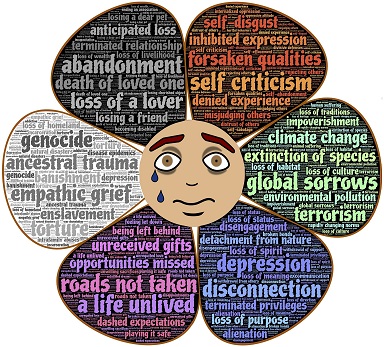Recovery From Trauma

"Trauma" is a word we sometimes use lightly these days, so that it has lost some of the significance of its meaning. It is not stress, or anxiety or grief, although trauma may well contain elements of each of these.
So What Is Trauma?
- It can be triggered by a one-time severe event, such as an accident or disaster, but may also be worsened when these events are repeated.
- It can also result from a pattern of high levels of unrelenting and extraordinary stress over a prolonged period of time.
- It can affect a single individual, or a whole community (such as might follow a natural disaster).
- Its impact is greatest when the trauma is unexpected and we feel unprepared.
- It may involve a threat to physical safety or even life, but this is not always present. It is how the individual interprets the event which gives (or denies) it the power to cause trauma.
- We are more likely to be traumatised by negative events which occur in childhood, when we feel least equipped to cope.
- Trauma is more likely to result from the actions of others which we see as intentionally cruel or destructive.
Who Is At Risk?
Anyone can be affected by trauma. We all have different levels of tolerance for stress and greater or lesser reserves of resilience, so two people might react very differently to the same experience. In general terms, however, the most vulnerable will be:
- Those who live with constant, ongoing stress.
- Children, who have not yet developed a support network and coping mechanisms.
- Those who have previously been traumatised.
- Those who have experienced severe accident, illness or injury, or have had someone close to them impacted by these.
How Does Trauma Affect People?
- They feel that the world is generally an unsafe place and they lack any sense of security.
- They frequently feel vulnerable, helpless and overwhelmed.
- They feel constant sadness which they cannot explain. Or they may feel numbness, having practised shutting down their emotional responses.
- Traumatised people often withdraw from forming relationships, due to trust issues.
- Symptoms such as guilt, shame, confusion, mood swings, distractability, or anxiety may sometimes be misinterpreted as depression or anxiety disorders. Always look for their connection to a specific triggering event or series of events.
There may also be physical indicators of trauma.
- Disturbed sleep, resulting in fatigue.
- Constant muscular tension.
- Hypervigilance (always being on the lookout for potential sources of danger).
- Irregular heart beat.
How Can Counselling Help?
Trauma may result in broken relationships or the avoidance of forming relationships, a decline in your ability to function in daily life, or turning to substance abuse to self-medicate and reduce the pain.
At Point of Change we are very aware of the need to treat each person as a unique individual and to provide a safe, accepting environment in which they can tell their story. We can support you in the process of learning how to rebuild trust, how to establish and manage a routine, how to acknowledge and validate your feelings and how to channel your emotional energy in healthy directions.
For help in recovering from trauma, contact Alli at Point Of Change Counselling and make an appointment.
